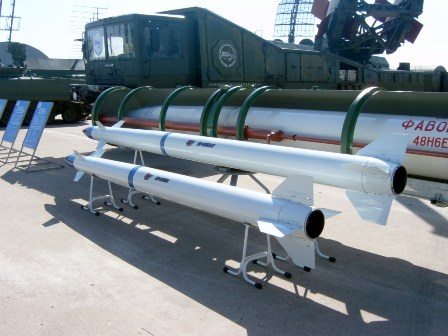Viktor Bout, a Russian ex-army officer alleged to have overseen the world’s biggest private arms dealing network, goes on trial next week in New York.
The trial October 11 in Manhattan federal court of the man US officials have dubbed “the merchant of death” brings to a head an extraordinary saga of furtive flights by ex-Soviet cargo planes, vicious African wars, and finally a sting operation by US agents in 2008 to capture Bout in a Bangkok hotel.
Bout is accused on the relatively narrow, if still spectacular charges that he attempted to sell undercover US agents an arsenal of infantry weapons and surface-to-air missiles for use by Colombia’s FARC guerrillas against US anti-narcotics personnel.
Bout has pleaded not guilty and although his New York legal team concedes that he did run a fleet of cargo planes, he has insisted he never sold or brokered so much as a single bullet. He faces up to life in prison if found guilty.
Jury selection from a pool of 80 will start October 11, possibly extending into October 12, Judge Shira Scheindlin said, with opening arguments either later that day, or delayed until October 17.
Security will be extraordinarily tight for the trial, which is expected to take about three weeks to complete. Even at a brief pretrial hearing Wednesday, officers searched under the courtroom desk and chair that Bout was about to use.
In a highly unusual move, Scheindlin said Wednesday she will also make the 12 jurors and alternates sign a statement swearing they will abstain from attempting to read about the notorious defendant on the Internet or anywhere else.
That is intended to ensure Bout, a striking-looking, mustachioed man mastering multiple languages, gets an impartial jury.
This could still be hard. Although Bout was the most discreet of figures in the shady transport business he admits he commanded in Africa after the collapse of the Soviet Union, his notoriety has grown since to near legendary levels.
A violence-filled movie “Lord of War,” starring Hollywood actor Nicholas Cage, was inspired by Bout’s life, while the chief US Drug Enforcement Agency agent who organized the sting in Thailand told CBS television that the defendant is “one of the most dangerous men on the face of the earth.”
The charges against Bout in New York are hair-raising by themselves. According to the US government, Bout enthusiastically told the US agents he mistakenly believed to be FARC representatives that he could deliver 700 missiles, 5,000 assault rifles and millions of rounds of ammunition, in addition to land mines and explosives.
Bout’s more extended resume — which is not directly at issue in the trial — allegedly includes pouring weapons into wars in Afghanistan, Angola, the Democratic Republic of the Congo, Liberia, Rwanda, Sierra Leone and Sudan.
“Those Russian aircraft were built like flying dump trucks. He could move this stuff and drop it with pinpoint accuracy to any desert, to any jungle, to any other remote place in the world. Right into the hands of what I refer to as the potpourri of global scum,” DEA agent Michael Braun told CBS.
Prior to the trial, lawyers sparred over what they could be allowed to say in court.
For example, Scheindlin barred mentions of Rwanda and Libya, which she said were irrelevant to this case and would be prejudicial to Bout.
A key prosecution witness — a former close associate of Bout named Andrew Smulian — will come with his own baggage as a longtime member of the South African military who boasted on tape of “mowing down blacks like wheat.”
During his testimony, Smulian is expected to refer to yet another hot-button issue: the 1993 US military fiasco in a battle in Somalia that became known as “Black Hawk Down.”
Quite apart from the courtroom fireworks, the case is overshadowed by tensions between Washington and Moscow. Russia long allowed Bout to live openly in Moscow and complained bitterly when he was extradited in 2010, after a long legal struggle, from Thailand to the United States.
Meanwhile, Louis Belanger, a spokesman for the charity Oxfam, said the Bout case — and the difficulty of bringing him to justice — sheds light on the wider problem of unregulated arms markets.
“Whether he’s guilty or not, this proves arms dealers have been able to operate in a legal vacuum for way too long,” Belanger said. “We have global trade rules about bananas, iPods, and shoes. There should be one on weapons.”










